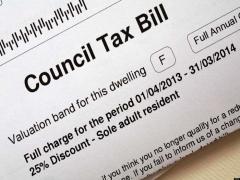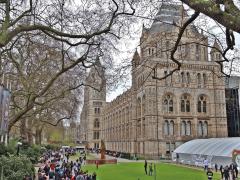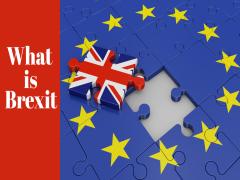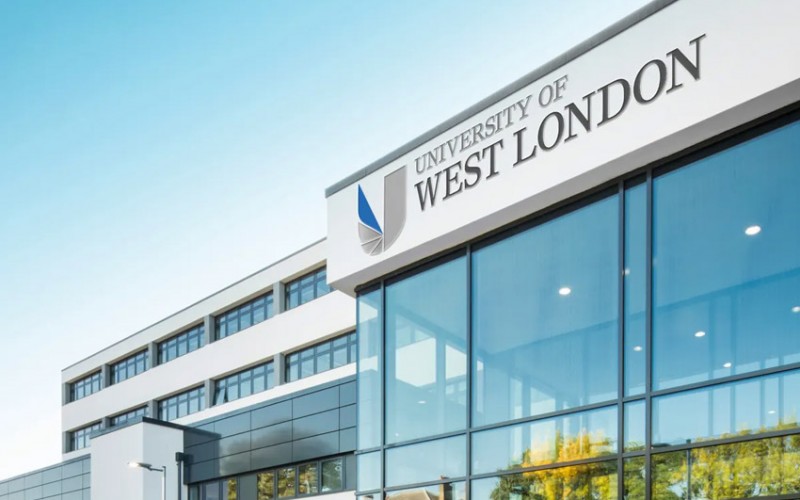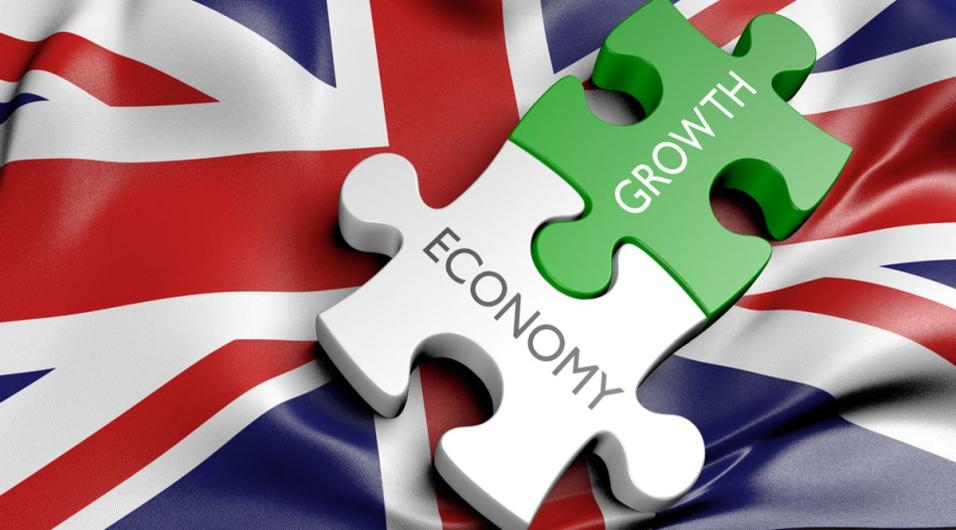
Inflation Rates, Trade Agreements, Post-Covid Economic Recovery
A Study of the Trends and Challenges Faced by the UK Economy in 2024: Inflation Rates, Trade Agreements, and Post-Covid Economic Recovery
The 2024 UK economy is swerving through a complicated landscape flagged off by the perseverance of effects from the COVID-19 pandemic, surging inflation rates, and changing trade policies, all posing a dual identity of challenges and opportunities for recovery and growth. As such an additional inflator of pressure on consumer purchasing power it focuses with due weight on the spillover effects that have into other sectors of the economy and how freely it has been flowing: An insight into Broader spillover effects which are linked to changes in spending habits like high expectations between households and businesses.
The response of the UK government to the increasing inflation through both monetary and fiscal ways is very important to put the economy in a stable position and to have an environment that will be favourable for recovery. Moreover, recent trade policy implications, especially after the United Kingdom of Great Britain and Northern Ireland left the European Union (Brexit), need to be in place to make sense of the UK international trade relationships in articulating broader economic recovery trajectory. The flow of goods and services is important because the trade policies determine that and they also present challenges for the United Kingdom in order to increase its global competitive nature.
It is in this regard that the research paper seeks to investigate how inflation interacts with trade policies and economic recovery, while also attempting to make predictions on inflation trends up to 2024. This will be achieved by critically examining the most significant challenges facing the UK in its attempt to use sound trade policies in fostering economic growth. The study will analyze the interrelation of these themes in defining the current state of the British economy after COVID-19 and possibilities for development.
Effects of Inflation on the UK Economy in 2024
In what way has inflation impacted consumer purchasing power in the UK?
The effects of inflation on consumer purchasing power in the UK have been varied, given a number of factors both during and after periods of lockdown. One of the key things is the approach used by the Office for National Statistics during the lockdown, which created a disinflationary bias. This bias could have acted to offset some of the inflationary pressures, which would have otherwise seriously eroded consumer purchasing power.
On the other hand, some sectors developed accelerated inflation as a result of the lockdown. For instance, the stockpiling that households engaged in caused a surge in the prices of non-perishable food items, leading to transient spikes in the cost of living which impinged on purchasing power.
The other complication was that huge swaths of the consumer services sector shut down, leaving 13–16% of the Consumer Price Index (CPI) basket unobserved, and creating big difficulty in estimating how much inflation has really hit purchasing power.
However, in view of these nuances, the manifest price pressures looked to have abated gradually over time, which could signal a future stabilization of real purchasing power in the months ahead.
This fine balance between initial elevations in prices and later stabilization illustrates very clearly how hard monitoring and flexible economic strategies are needed to protect buying power under oscillating inflation dynamics.
What steps have been taken by the UK government to curb inflation?
Concerning the inflationary pressures, the UK government has taken several actions to combat inflation, particularly through the implementation of supply-side reforms. Of the tax policies and labor market reforms, which were initiated to address cost-push inflation - that is, where the inflation drives costs of production rather than from excess demand− have been important.
The Boris Johnson and Elizabeth Truss government has, however, assessed policy effectiveness and noted that demand-side economic policies are ineffective in the current economic climate.
One major intervention is the energy price guarantee, a temporary program of pricing that initially limited retail and some commercial prices for energy; it was later renewed as an ongoing relief effort.
It was designed to protect consumers from fluctuating energy prices and also entailed compensating energy firms to maintain price stability.
These interventions point to the supply-side measures as the strategic focus of the government, considered vital in re-energizing the UK economy with new life and ensuring long-term inflation management.
He added that continuous monitoring and adaptation will be necessary to effectively steer policies through the changing economic landscape and effectively contain inflationary pressures.
Predictions on Inflation Trends UK For The Rest Of 2024?
Set against the energy price guarantee, the interaction of energy prices with UK inflation trends for 2024 needs to be considered more closely. Firstly, an elevation of inflation is expected temporarily, based mainly on the coefficients on lagged energy prices, which indicate the delayed effect of past movements of energy prices on current rates of inflation. This is going to be transitory.
This expectation is consistent with the broader economic view that energy prices, though capped for some time, have a lagged impact that comes through ultimately in the inflation measures. It is also expected that after this general downtrend, the general disinflation will proceed, though it will be at a slower rate as the disinflationary impact from previous energy price shocks diminishes.
Further supporting the moderation in the decline of inflation is the projection that the disinflationary impacts from relative energy and food prices will diminish as these price shocks come to an end.
In this way, the interaction of energy pricing policies with their own lags serves to reinforce the case for monetary policy vigilance in taming these inflationary pressures. In sum, while such transitorily high inflation from past energy prices is expected, with the progress of the year, an easing off of inflation at a slower pace is envisaged, hence calling for strategic responses by the Bank of England to steady the economy.
Trade Policies and Their Influence on Economic Recovery Post-Pandemic
In what way have recent trade policies impacted the UK’s international trade relationships?
Recent trade policies have drastically reoriented the UK's international trade relationships, especially within the post-Brexit environment. Examples like the "Reshoring UK" initiative are very nationalistic and populist trade policies, advocating domestic manufacturing and reducing dependency on international supply chains.
This has shifted to duties and barriers being implemented that strain relationships with previous trade partners. Including the European Union, which needed to navigate new trade agreements with the UK. Further, these policies have a pronounced impact on global trade dynamics towards a more fragmented and protectionist global trade environment.
As the UK continues to recalibrate, it will need to face the music with respect to how catalytic this will be with its economic convalescence and footprints. Given the emphasis on structural reforms and economic recovery post-pandemic, it will be important for the UK to focus on maintaining competitiveness via stringent measures that also foster stability trade relationships given the new economic world order.
One of the vital challenges in the implementation of new trade policies that the UK has is to manage the economic recovery coupled with the many impacts of the pandemic, which needs careful balancing act. The Labour and Trade sectors are two operational sectors facing major issues of imbalances due to the pandemic-induced economic disruptions, which are particular concerns shared all across but having several special implications for the UK.
Of particular necessity, however, is the Reviving of the UK's Structural Reforms and New Economic Strategies if it is to find its way among the complex Post-Pandemic Trade Dynamics. Beyond just that, the United Kingdom's trading relationships with other developed countries such as China and the US are changing based on larger geopolitical transformations as mainland nations look towards strategic responses on their economic recovery.
The challenge is further compounded by the necessity to ensure trade openness. This is critical for sustained economic growth but must be balanced after the short-term measures of protection adopted during the pandemic. Addressing these challenges should be done in a sophisticated way that takes into account immediate economic needs beside long-term strategic aims; this throws into bold relief the importance that policy coherence and international cooperation have to make for resilient economic recovery.
In what ways are trade policies shaping the economic recovery of the UK post-pandemic?
Post-pandemic economic recovery in the UK has been significantly contributed to by strategic trade policies which balance short-term stabilisation with long-term growth. Grappling with this as one of the pivotal aspects of the policy is how international trade agreements and regional economic integration can play a major role in reviving the economy.
It has been able to secure important trade flows and tax revenues critical to economic stability by playing the EU and China off its trade relationships with major economic powers.
Furthermore, the UK commitment to green economic transition through trade policies will make the recovery efforts to be in line with global decarbonization goals, hence more sustainability and economic resilience. For the UK to ensure balanced recovery, it has to keep harmonizing its trade policies with broader geopolitical strategies to make economic benefits be distributed equitably across different sectors and regions. The All-inclusive nature of this approach underlines the need for continuous refinement of trade policies in response to the changing face of the global economic landscape towards a strong and sustainable economic recovery.
The analysis of the UK economy in 2024 is therefore one of a tangled web of influences involving inflation, trade policies, and the pandemic recovery that both presents challenges and flags opportunities to the policymakers. The bias against disinflation introduced by the Office for National Statistics during lockdown periods probably served to insulate purchasing power within the consumer base against far stronger pressures of inflation.
Nevertheless, it does complicate the overall assessment on sector-specific inflation spikes during these periods regarding its impact on consumers. This speaks, therefore, to the great need for economic policies that are dynamic and responsive to changes that take place in the economic environment. More so, the growing protectionism in global trade, which was heightened by post-Brexit policies from the UK, underscores a need to review trade strategies to hold onto critical economic relationships— especially those with the EU and China.
Inclusive of the little effectiveness revealed by demand-side economic policies pushed forward by the government, the formulation emphasis on supply-side reforms plus the strategy interventions like energy price guarantee all indicates a coverage approach on how to steer inflation and stabilize consumer costs.
Key for determining the recovery story that emerges on the economy in the next coming months will be the play between energy prices and inflation trends. However, a significant limitation arises from the unobserved portions of the Consumer Price Index during the pandemic, which impedes a comprehensive perspective on the full effect of inflation on purchasing power. Future research should use longitudinal studies tracking the implemented policies' effectiveness and having a closer look at the broader implications that global economic shifts have on domestic trade dynamics.
